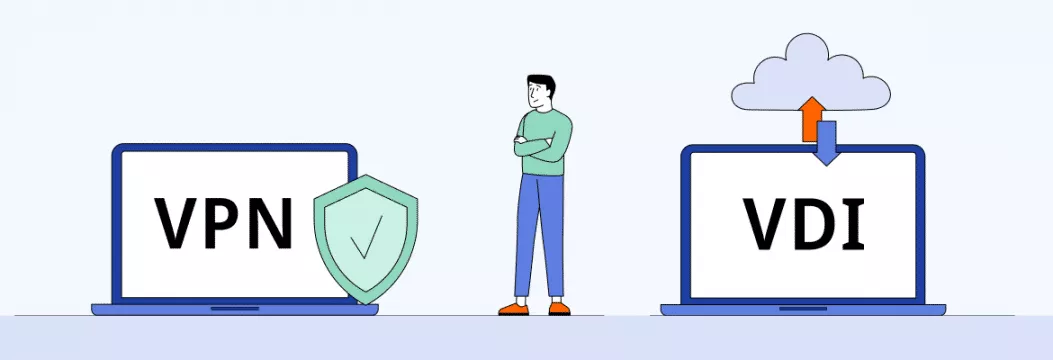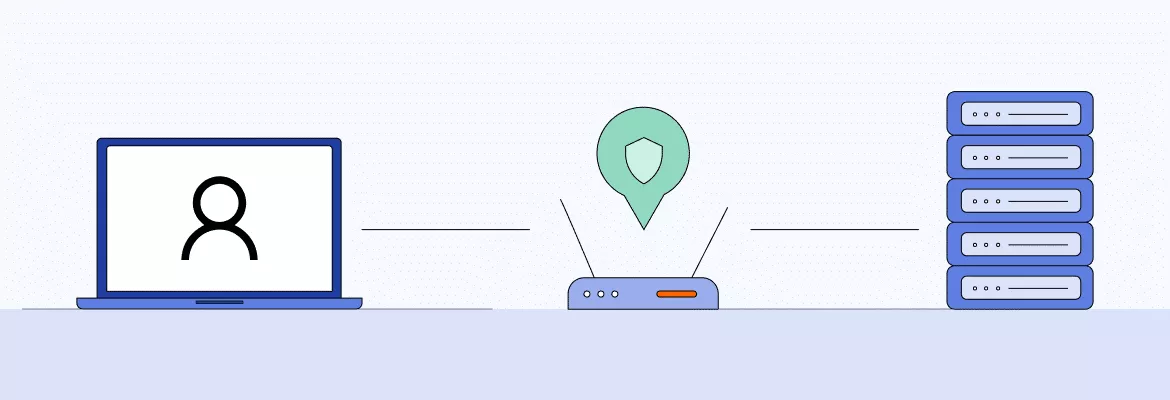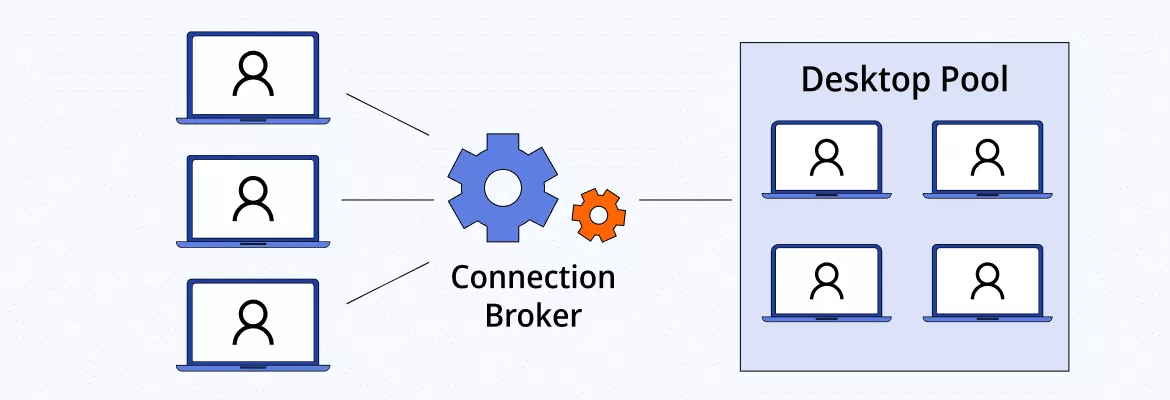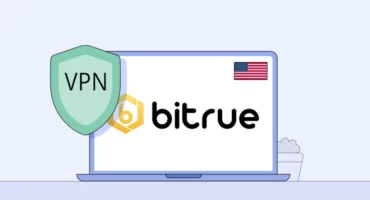VDI vs VPN: Picking the Best Solution for Remote Teams
Remote work is here to stay. With COVID-19 fast-tracking this trend in 2020, it shows no signs of slowing down as remote career opportunities continue to grow, research demonstrates. That said, companies crave effective solutions for remote teams to keep them connected. Some leveraged virtual private networks (VPNs), while others upgraded to virtual desktop infrastructure (VDI). And since choosing between the two has become a bit debatable, let’s look at both of them and point out the difference.

Why secure networks when working remotely
But first, why exactly do companies need to ensure secure remote access? Among the main reasons are:
- Unsecured public Wi-Fi. While most remote workers access their company’s resources from home networks, some may still want to (or need to) use public Wi-FI. And yes, it is not safe at all. Employers should always discourage it, and, to be on the safe side, companies have to secure their networks.
- Use of personal devices. When at home, many workers have no choice but to use personal devices and home networks to get the job done. Which is among the biggest cybersecurity risks in a work setting as sensitive information is often involved. Besides, employees may not have up-to-date antivirus software or may use outdated personal password protection.
- Use of collaboration apps. Collaboration and messaging apps such as Microsoft Teams, Slack and WhatsApp have taken business settings by storm in the last years. These social networks are great for keeping in touch with colleagues, but they can also be a gateway for hackers to get to enterprise networks and gain access to sensitive company data.
Sounds risky, right? That’s why companies need to make sure corporate networks and resources are highly-secured. So, let’s turn to our options and see how they can help.
What is a Virtual Private Network (VPN)?
A VPN is a tunnel between an endpoint device and another network, commonly used to allow secure remote access for employees from various devices, like PCs or laptops. A VPN is a millennial within the corporate security field, backing it up since 1996.
At the same time, commercial VPNs are popular for personal use as well now. They allow you to access needed content, protect internet privacy, and ensure online security. VeePN is one such example. It doesn’t store your data, provides strongest AES-256 encryption that protects against brute force attacks, and allows you to connect up to 10 devices. Eager to secure your entire home network? Connect VeePN to your router. Or maybe you want to stream content from anywhere in the world without restrictions? Try VeePN and enjoy no speed caps and limits.
How VPN works
Let’s get back on track. Since users access a private network with possible confidential data and many potential threats of doing so over the internet are looming, it’s essential to ensure that data travels safely. This is when VPN steps in, creating a tunnel that ensures corporate resources don’t fall into the wrong hands. VPN encrypts all traffic between two networks and masks the IP addresses. Also, admins configure the VPN access policy and set up the shared resources. This way, employees can remotely access company’s resources within the defined system.

VPN: pros and cons
Now, what are VPN’s strengths and weaknesses? Let’s find out.
VPN advantages
- Easier to implement and use. Because VPN doesn’t require extensive infrastructure within a company, its exploitation is much easier.
- Easily accessible to users. Users can set up a secure connection in just one click.
- Fast speeds. Top-notch VPN clients provide high speeds due to extensive server networks.
- Cheaper prices. VPNs are among the cheapest solutions for corporate security.
VPN drawbacks
- User devices impact performance. Since the hardware employees use is different, VPNs can run differently on various devices, depending on operating systems, and so on.
- A decentralized approach. Employers often rely on employees to use the VPN service correctly and to remember to switch it on. And this sometimes can be too much responsibility for them.
- Unpredictable performance. Since VPN connections occur over the public Internet, network performance directly depends on public internet performance.
What is a Virtual Desktop Infrastructure (VDI)?
Moving on, a VDI is a technology used to host desktop environments in the cloud. Virtual machines (VMs) run desktop images (replicas of employees’ actual desktops, which remote workers can access using the internet). A younger sibling to a VPN, VDI has already proven successful in the corporate security market. Nol-Tec Systems is among the success stories in this regard — because the company implemented a VMware VDI solution before the COVID-19 pandemic, going fully remote wasn’t troublesome.
How VDI works
Back to specifics — what are the elements behind VDI?
- Connection broker — a software program allowing the end user to connect to a remote virtual desktop.
- Hypervisor — a software separating the operating system from hardware by creating a virtualized environment.
- Desktop pools — a group of virtual desktops with the same configuration, like OS, storage, and applications.
So, how do they all work together to implement a VDI solution? User sends a login request to their end point device. Connection broker accepts it and links a user device to a remote virtual desktop. At the same time, a dedicated server hosted in a data center (or office) runs multiple virtual desktops that make up a desktop pool and provide remote workstations. Also, a good thing is that VDI is device-agnostic, meaning it doesn’t rely on the end-user hardware.

VDI: pros and cons
Now on to the strengths and pitfalls of the VDI solution.
VDI advantages
- Centralized management system. Everything’s easily managed in a central location. For instance, new OS versions can simply be run to the central desktop and then made available to all end user devices.
- Fast access. Users can swiftly access resources since they have their own dedicated systems.
- Flexibility. Businesses can quickly access new virtual desktops for temp or seasonal employees, consultants, and for development and testing purposes.
- Bring your own device (BYOD). This trend is no longer a problem for remote teams – the device used to access a virtual desktop doesn’t pose a risk as virtual desktops are hosted on a central server in a remote location.
VDI cons
- High cost. Adding an extra layer of software for hosting the VDI system, server hardware, and dedicated resources for each workstation costs a lot of money.
- Dedicated IT staff required. You’ll need dedicated IT team members to maintain the server, install applications, and so on. So, it might be a problem for smaller companies.
- Training. Initial training is challenging as new users need to learn new terminology and transit to a different interface with different troubleshooting steps.
VPN vs VDI: Difference defined
Although similar at first glance, VDI and VPN are different. And the main difference in how they work is that VPN establishes a tunnel between the end user and company’s private network, while VDI grants access to a remote desktop on which employees can work. But to make their difference even more clear, let’s compare each solution head-to-head.
Data storage and security
First, both solutions benefit companies in terms of data storage and security – but in a different way. VPN requires user authentication and encrypts data in transit. However, once data arrives safely to the end device, it has no security limits – users can move and copy it to their other devices without restrictions. At the same time, within the VDI architecture, data and applications are protected on company servers or the cloud at all times. And to limit moving data to external devices, administrators can configure virtual desktops.
Applications
While VDI allows all applications to be installed on a virtual desktop, enabling access to the said desktop through a client app, VPN provides access to a corporate network, not applications. That’s why VPN users will need to install them separately on their devices or access via a browser.
Hardware
VPN is highly dependent on user hardware because all the work is done on client devices (which may use outdated operating systems and be limited to connection speeds, hence affecting performance). VDI, though, runs in the cloud, so less hardware is required. A dedicated server does all the processing using dedicated resources assigned to the VM that runs the virtual desktop.
Management and maintenance
VPN server is largely easy to maintain, but managing client devices is more challenging since they use off-site resources. VDI has it the opposite way – a centralized system management lets admins easily update and fix issues on a virtual desktop infrastructure. For example, they can push updates to all users simultaneously from a central server. At the same time, the VDI system includes running numerous VMs, which requires skilled admins able to configure and ensure proper setup.
Cost
Finally, out of the two options, VPN is less expensive because of its minimal hardware requirements and less expensive maintenance – it uses clients’ devices and a single account can cover multiple devices. Besides, businesses can use a free trial to ensure it’s the solution for them before paying for a subscription. VDI is more expensive in this regard. You need to add an extra layer of software to host the VDI system, server hardware, and dedicated resources for each workstation. And it’d cost a lot.
Difference between VDI vs VPN: A final look
| VPN | VDI | |
|---|---|---|
| Data storage and security | Encrypts data and allows to copy files to local devices | Can restrict users from moving or copying data to local devices |
| Applications | Applications are installed on the user device or accessed through a browser | Applications are installed on a virtual desktop |
| Hardware | Highly reliable on end user devices and resources | Minimal hardware requirements from end users |
| Management and maintenance | More difficult to manage and troubleshoot when working with off-site resources | Centralized system running all workstations |
| Cost | Cost-effective due to minimal resource requirements | More expensive since it requires additional software and hardware |
Is VDI better than VPN?
Well, while VDI does have a lot of strengths, it wouldn’t be fair to assume its superiority over VPN in every case. We can say that VPN is more suitable for smaller businesses due to its cost-effectiveness, easy implementation, and simple use. If you have a larger workforce, though, where high performance is required, VDI would make a better choice.
Wrap-up
The choice to pursue VPN or VDI depends on your use case (sorry, we can’t push one solution over the other since all business needs differ, so a decision isn’t unified here). You understand how both work now and what pros and cons of each are. We know you’ll make the right call.
FAQ: VDI vs VPN
VDI works by connecting to another machine online, so if your Internet goes out, you won’t be able to work. But, if we’re traveling on a train or plane, or if the internet isn’t reliable, a VPN would be more suitable. You just download the files you need to work on your own computer and send them when you get back online.
When it comes to printing across multiple locations, a VPN may be the better option for your team. Although it’s possible to print to a local printer using some VDI systems, this configuration can be challenging to maintain and support. VPNs, on the other hand, usually enable printing to both local printers and those on the corporate network, if required. Furthermore, VPNs enable you to print to any machine linked to the network, allowing you to send documents wherever they are needed.
If you’re going to connect personal devices, you have to make sure they’re safe to use because a VPN links the device straight to the network. IThis solution works well when companies can supply and configure the devices that require access. But if that’s not the case, VDI is more reliable because it doesn’t require much software.
Also, think about whether the team needs to get into any programs or apps that aren’t on their own devices. If you use programs with limited licenses or software that needs specific setups, VDI is a great solution. Instead of copying everything onto many devices, VDI keeps it all in one place that anyone can get to.
If they need to use things like that to be there in person, teleconferencing might not work with VDI because virtual machines can’t support those features. When this happens, we need to use a VPN to get the access we need.
Setting up VDI can be a more challenging task, but its management becomes easier once it’s installed as the machine can be accessed directly. On the other hand, VPNs can be a “black box” where it can be difficult to identify issues, and you may need to rely on your team to communicate and test. By using a VDI connection, your IT team gains more control over troubleshooting, and this takes the responsibility off of a less technically skilled workforce.
VeePN is freedom




